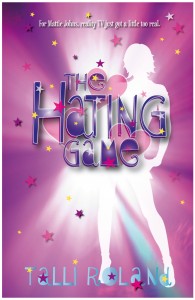I was on Twitter last night (I know, a very rare occasion) and got into a snowball discussion. I don’t know if this is a technical term, but it should be. What I mean is, I started talking to one person on a topic and very quickly we were joined by more and more women. We weren’t talking about X Factor or I’m A Celebrity or Strictly Come Dancing or Merlin. Or the recession, Ireland’s bailout, the students protesting or the mining disaster in New Zealand. These are all very popular topics at the minute but it wasn’t ours. We were talking about hypothyroidism.
This may sound totally boring and not the kind of discussion you might expect to snowball the way it did. After all, what is it? Low levels of the thyroid hormone. Ah, you’re thinking. Women discussing hormones, that sounds more like it. Probably having a moan. Let’s leave them to it. Unfortunately, that was kind of our point.
I’ve had an underactive thyroid since birth. I’m one in about 2000, and until I reached adulthood, that was just the way it was. I had an unusual condition, I took tablets, I had regular checks, end of story. Then as I got older and started working and my contemporaries were adult women and not children, it turned out that hypothyroidism was a lot more common than I thought, but still pretty unusual. Now I realise, and it’s borne in even more after last night’s discussion, that hypothyroidism is extremely common, and that the only unusual thing about it for me was the timing. A large proportion of adult women are suffering from weight gain, tiredness, hair loss, memory problems, intolerance to cold, difficulty concentrating, lethargy, depression, and often amenorrhea.
So what, you say? That’s normal. Hormone problems. The problem with that is, that’s also what doctors frequently think too. Which is understandable, after all those symptoms are very similar to a range of problems including the menopause. It would be more understandable, however, if the doctors did a tiny little blood test before deciding ‘menopause’, just to rule hypothyroidism out. Some women have researched their symptoms and have discovered hypothyroidism, and are feeling frustrated that their doctors won’t listen to them (this is a common problem with male doctors and female patients. I’ve run across it before. I’m sorry, but it is). Other women are suffering miserably, either because they don’t feel able to push for thyroid tests or because they don’t know about them.
I do realise that a GP should not specialise in everything, but surely an awareness of such a common condition should be high on their list of priorities? The thing is, that list doesn’t really sound that serious. It IS like the menopause, and, y’know, thousands of women just get on with it. Now, I’ve not got to the menopause yet. That’s a nice treat in store for me and my family. But I have suffered from hypothyroidism, when my dose has been wrong or (guilty face) I’ve forgotten to take my tablets. That list quickly gets oppressive. You don’t have energy for ANYTHING. You feel ill – without being able to put a finger on any one thing, you just feel ILL. It gets worse, but it’s not just physical. It affects your mental capacity too, your thought processes get slower and your emotions get slower, but so gradually you don’t really notice; and because your mental capacity is slower you’re less able to notice or describe it.
Maybe it would help if I described what thyroxine actually controls. Maybe I should have said sooner. Ok: EVERYTHING. It controls your rate of metabolism, which is basically how every cell in your body functions. Every single cell. Your mental capacity starts to slow down because the cells in your organs are more important. And eventually, untreated long enough, it does come down to that choice. So you see why brushing hypothyroidism off as menopause isn’t really all that helpful. And it’s so easily fixable. A blood test, in which you specify that you want your levels of T3, T4 and TSH measured (thyroxine and Thyroid Stimulating Hormone). You have to specify this, because otherwise they’ll do the simplest and cheapest test and you really need the whole picture for a diagnosis (wouldn’t you think this would be standard? but no). After that, a tiny little tablet or two a day and regular checks, and that long list goes away.
At least, until you really are menopausal.
I don’t really know what the answer is, except that if you’re suspecting hypothyroidism to push and push for the test and for second and third opinions until you get it. If you’re suffering from those symptoms (and more, see below) and haven’t previously considered hypothyroidism, go and ask your doctor. And, although far more common in women, it can affect men too. It’s the same as any problem, if enough people shout then someone has to listen.
*I recommend you check out Thyroid UK for more information; they also have links to other campaigns etc. And Patient UK has a good factsheet on hypothyroidism here.

